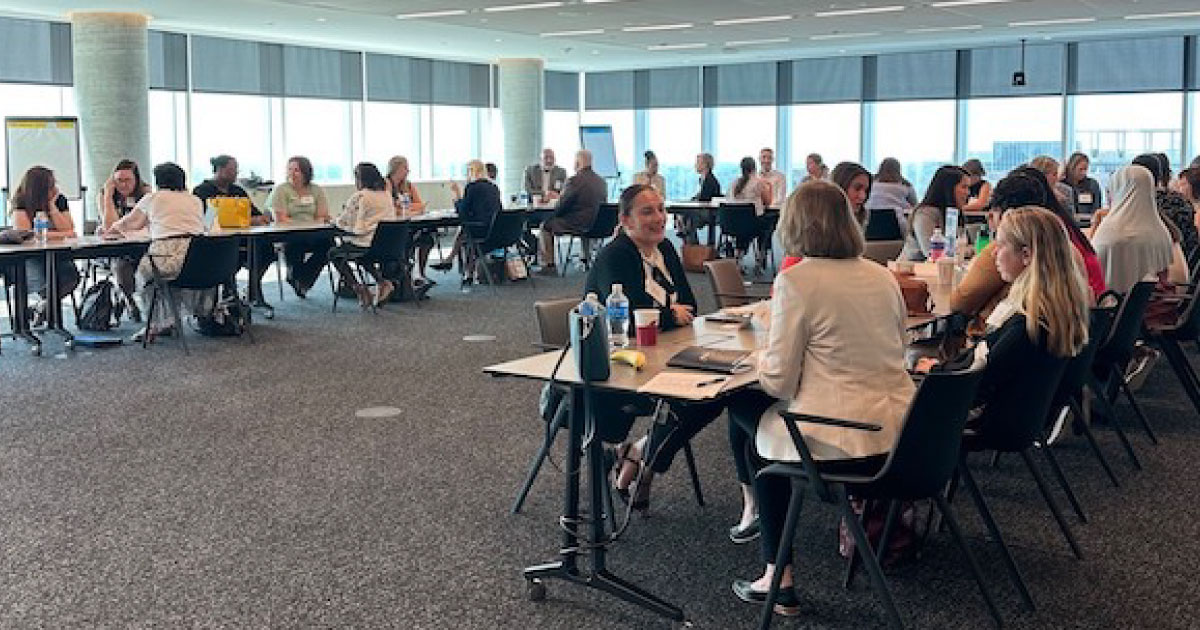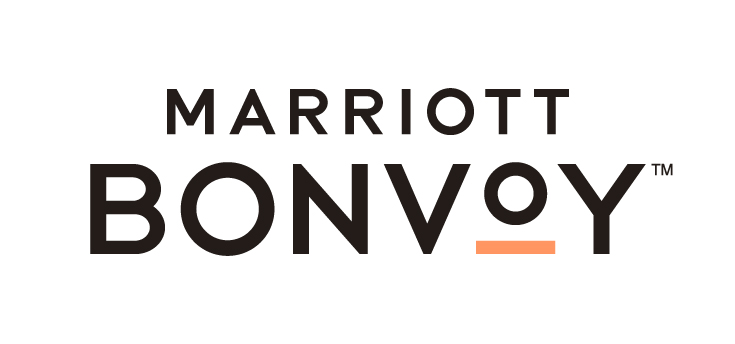How important is sustainability to meeting professionals in 2023? Courtney Lohmann, CMP, SEPC, is seeing “an eagerness like never before.”
Lohmann, founder of Caretta Impact and a 23-year veteran of meetings, hospitality and travel, would know. She developed the curriculum for a sustainability boot camp—a partnership between MPI and Marriott International—with the inaugural edition taking place at MPI’s World Education Congress in June.
A micro-certificate sustainability program was then held in Bethesda, Md., just outside of Washington, D.C., in July. The program was a component of MPI’s Regional Business Exchange—a unique micro-event experience that also featured Express Connect (a networking format that allows participants to meet multiple potential partners or clients in a condensed period) and an exclusive tour of Marriott’s brand-new global headquarters.
“The partnership between MPI and Marriott helped us present this important content on sustainability in the meeting and event industry,” says Tim Luepke, CMM, CMP, CTS, DES, director of the MPI Academy. “This content enables us to prove the intrinsic value of event sustainability to all our industry stakeholders and encourages everyone to work together toward a future worth having.”
Sustainability coverage brought to you by
Telling the story
Lohmann says it’s clear that planners have become far more open to sustainability and are showing a willingness to change past planning practices with a more sustainable future in mind.
“Food and beverage still makes a big splash. This section [of the program] seems to generate the most discussion,” she says. “And it makes sense. This is something we have at every event. I have also seen a very interesting discussion around the role of the DMO and how the DMO can help with sustainable planning tools. I don’t think most planners realize how much DMOs are doing to help define sustainability in their destinations. And I think DMOs need to tell that story better so that planners know to engage with the DMO prior to booking a destination. DMOs have a tremendous number of resources available for planners and can make planning a sustainable event far simpler.”
Much of the discussion coming from program attendees has centered around either attendee engagement or challenges with supplier partners, according to Lohmann.
“It’s the story of a planner implementing something but then attendees not really participating in it—or they receive negative feedback on their post-event survey,” she says. “I think this is due to planners not taking a strategic approach to their sustainability plan and not telling the story behind why they are implementing it. You have to tell the story early and often to help engage all of your stakeholders and hit maximum impact.”
Though big changes at many venues indicate a stronger focus on sustainability, a disconnect between planners and suppliers tends to linger, Lohmann says.
“Sustainability is a massive topic, and depending on what area you focus on, the sustainable solutions you offer out to a planner may vary from one venue/hotel to another,” she says. “Planners are not savvy enough in all of the venue operational elements of sustainability to know what questions to ask. So, we land in this place in the middle, which is the disconnect. I think all venues/hotels and any supplier focused on sustainability needs to tell their story better and in a very transparent way.”
Encouraging conversations
Carolyn Patterson-Kemper, M.S., CMP, DES, vice president and head of events for Chevy Chase Trust, attended the Regional Business Exchange and was particularly intrigued by stats shared during the sustainability program about the environmental impact of meetings and events.
“I really liked the three-pronged approach of the Regional Business Exchange, which allowed for planners to first meet with DMO representatives in a speed-dating setting, followed by the education on sustainability and rounding it out with a fascinating tour of the Marriott International headquarters. I would highly recommend all planners attend the program!” -Carolyn Patterson-Kemper, M.S., CMP, DES, vice president and head of events for Chevy Chase Trust
“Although this data was an eye opener, it presents meeting and event professionals with an inherent opportunity to graft in conversations around sustainability efforts with leadership during the inception of meeting planning,” she says.
Attendee Sharia Barksdale, MTA, CMP, DES, manager, meetings for the American Institute of Architects appreciated Lohmann’s starting-small approach.
“Sustainability is such an important mission in our industry that executing it successfully always felt daunting,” she says. “Her advice to establish a strategic plan on which sustainability initiatives are important to your organization, earmarking three to eight to guide your focused efforts, then slowly allocating resources and adopting practices to fulfill each initiative over time was game changing! This allows an organization to gain its footing and momentum in sustainable practice adoption while adjusting expectations and gaining buy-in from all stakeholders—specifically attendees who will physically experience the changes with the implementation of your program.”
Barksdale says her next step following the program will be conducting research into her own event history.
“I’m not sure what magic formula the MPI team used to curate those who attended the Regional Business Exchange, but I was very pleased to convene with such an amazing group of professionals. The suppliers present gave wonderful insights on their destinations, but also on the efforts being made to move our industry towards more diverse and inclusive experiences. I made some new friends, learned more about MPI and the amazing services offered to its members and gained some amazing new information on sustainability. But most importantly, I left inspired and excited to contribute to our industry in a greater way.” -Sharia Barksdale, MTA, CMP, DES, manager, meetings for the American Institute of Architects
“Evaluating overall event spend, meal counts versus actual attendance, post-event survey responses and even hosting a focus group to ask targeted questions will give a great starting point to what efforts are important to both your organization and program,” she says. “Collecting this data allows us as planners to connect with organization leadership to establish a strategic sustainability committee tasked with exploring the initiatives that our staffing and resources can realistically manage, and to set achievable goals and target timeframes for execution.”
Patterson-Kemper also plans to begin conducting internal research within her organization, starting with an audit of sustainability practices to ultimately improve its carbon footprint.
“Attending the MPI Regional Business Exchange has also inspired me to begin incorporating specific questions about sustainability and encourage those conversations with caterers, venues, hoteliers and other vendor partners during the vetting process,” she says.




